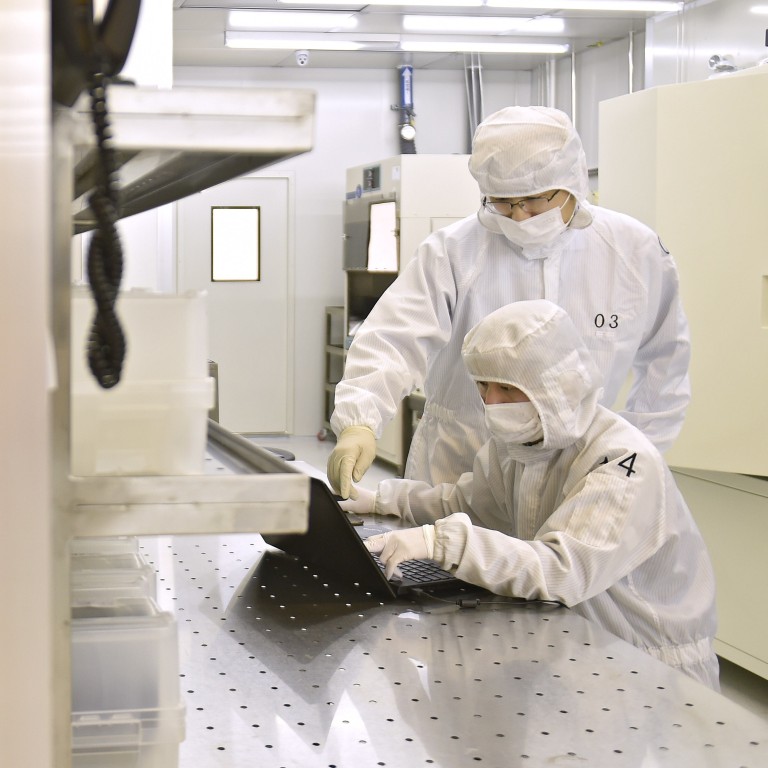
US-China tech war: America being held back by budgetary red tape, Pentagon official says
- China is ‘focused on high technology to transform their economy’, says Michael Brown, director of the defence innovation unit
- ‘As we all know, it takes two years to plan a dollar of spending’ at the US defence department, he says
A “time-consuming budgetary process” had impeded the country’s ability to innovate and keep pace with Beijing, Michael Brown, director of the defence innovation unit at the Pentagon, said at an online seminar hosted by the Hudson Institute on Friday.
By comparison, the Chinese system had proven to be much more adaptable with the “powerful combination” of state-led directives and market incentives – copying Western ways of raising capital while avoiding the mistakes made by the Soviet Union during the Cold War arms race, Brown said.
“So we need to be moving at a rate of speed that makes sure we’re not getting behind because there’s a first-mover advantage for these new technologies.”
Beijing’s achievements amounted to a “Sputnik moment”, Brown said, referring to the Soviet Union’s launch of Sputnik 1 – the world’s first artificial satellite – in 1957, which ignited American fears about the perceived technological gap between the two superpowers during the Cold War.

But China was now a much stronger competitor than the Soviet Union ever was, he said.
“China today has the very real possibility of being a greater economy than ours … and focused on high technology to transform their economy,” Brown said.
“The Soviets were nowhere near that. They applied all their efforts on military competition. It’s quite clear that China is focused on economic competition and being quite successful at it.”
Beijing had also learned from the success of Silicon Valley in nurturing innovation, Brown said.
“What they’ve effectively copied is the US system. They’re using market incentives. They have 500 different investing entities that mirror Western ways of raising capital,” he said.
“They’ve mirrored that system, are they are trying to mirror what we’ve done with research, creating research parks, locating people. They’re certainly doing a good job of bringing government business and academia together.”
China is ‘30 years off being a top-tier industrial powerhouse’
China’s venture capital market is the largest in Asia and second only to the US in global terms. Over the past 15 years it has spawned a third of the world’s unicorns, a term used for start-up businesses valued in excess of US$1 billion.
In its latest five-year plan, the Chinese government has pledged to increase spending on research and development by more than 7 per cent. Areas targeted for additional support include semiconductors, quantum and cloud computing, and artificial intelligence for both military and commercial use.
Brown said that although the US had begun to pay attention to China’s achievement in technology, its defence sector was “not moving at a fast enough pace”.
“As we all know, it takes two years to plan a dollar of spending at the DOD,” he said, referring to the defence department.
Bill Greenwalt, a visiting fellow at the American Enterprise Institute and former US deputy undersecretary of defence for industrial policy, agreed with Brown.
The resource allocation system within the US defence department had become “even more cumbersome and less agile” in recent years and the bureaucratic process involved in budgeting was “slowing us down”, he said.
Song Zhongping, a Hong Kong-based military commentator, said China’s defence sector had benefited from the country’s top-down decision making process.
“With the US system, it’s difficult for them to focus on a certain project for a long term,” he said. “Efforts made by one administration could be wiped away by the next president, so there is a lack of continuity in their ability to develop and execute projects.”
Despite those advantages, China was still relatively weak in basic research, an area that the government had pledged to strengthen over the next five years, he said.

